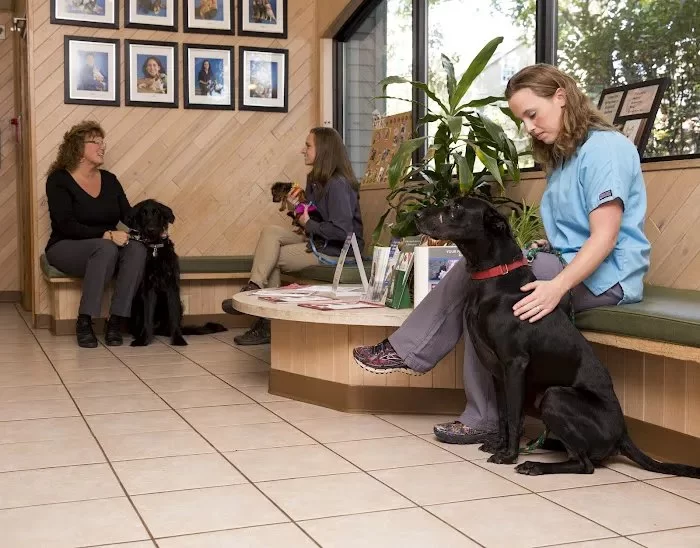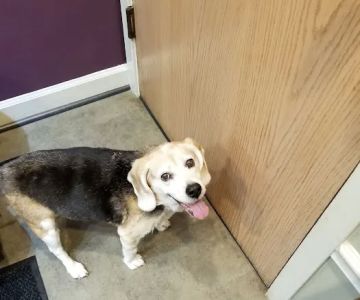- Understanding Dog Anxiety in Loud Situations
- 1 - Why Some Dogs React to Loud Noises
- 2 - How to Train Dogs to Be Calm During Loud Situations
- 3 - Desensitization Training for Loud Noises
- 4 - Calming Techniques and Tools for Dogs
- 5 - When to Consult a Professional for Severe Anxiety
- 6 - Products for Dog Anxiety Available at Hidden Brook Veterinary
Understanding Dog Anxiety in Loud Situations
Many dogs experience anxiety when exposed to loud sounds like fireworks, thunderstorms, or construction noise. This can manifest in various behaviors, such as barking, panting, hiding, or even destructive actions. Understanding how to train dogs to be calm during loud situations is essential for pet owners who want to ensure their dogs feel safe and secure, even when the world around them is noisy.
By exploring the reasons behind your dog's anxiety, you can better address the issue and help them cope with the stress caused by loud noises. This article will provide insights into why some dogs are more sensitive to sounds and effective methods for training them to remain calm.
1 - Why Some Dogs React to Loud Noises
1.1 - Genetic Factors and Breed Sensitivity
Certain dog breeds are more predisposed to noise sensitivity due to their genetics. For example, herding breeds like Border Collies and German Shepherds are often more reactive to sounds, while breeds such as Greyhounds or Dalmatians may also show increased sensitivity. These dogs are often more alert and attuned to their surroundings, making them more likely to react to loud or sudden noises.
1.2 - Lack of Exposure to Loud Noises
Dogs that are not exposed to loud sounds in their early life may develop fear-based reactions when they encounter these noises later on. Puppies that have not been desensitized to things like fireworks, thunderstorms, or even loud household appliances might be more prone to anxiety in adulthood.
1.3 - Traumatic Experiences
If a dog has had a negative experience with loud noises, such as being startled by a loud bang or being left alone during a storm, it can develop a lasting fear of those sounds. These traumatic events can have a long-lasting effect, making it more challenging to train the dog to be calm during loud situations.
2 - How to Train Dogs to Be Calm During Loud Situations
2.1 - Start with Gradual Exposure
One of the most effective ways to train your dog to remain calm in loud situations is through gradual exposure. Begin by playing recorded sounds of fireworks, thunderstorms, or other loud noises at a low volume. Reward your dog with treats and praise when it remains calm. Slowly increase the volume over time, ensuring that the dog remains comfortable with each level before progressing to a louder sound.
2.2 - Counter-Conditioning: Changing the Dog’s Emotional Response
Counter-conditioning involves pairing the frightening noise with something positive. For example, play the sound of fireworks while giving your dog its favorite toy or treat. This helps the dog associate the noise with positive outcomes, reducing its fearful reaction over time. Be patient, as this method can take time to show results, but consistency is key.
2.3 - Use of a Safe Space
Creating a calm, safe space for your dog can also help it feel more secure during loud events. A crate or a quiet room with cozy bedding and calming music can serve as a retreat. Dogs that feel they have a "safe zone" to go to during loud noises may be less likely to become anxious or scared.
3 - Desensitization Training for Loud Noises
3.1 - Slow and Steady Progress
Desensitization is a training method where you gradually expose your dog to the loud noise in a controlled manner. Start with a low volume and gradually increase it over time while offering positive reinforcement, like treats or affection. This technique helps your dog get used to the noise without feeling overwhelmed.
3.2 - Consistent Practice
Consistency is essential when using desensitization training. Practice the technique regularly, even on days when there is no loud noise, to ensure your dog remains comfortable with the sounds. Over time, your dog will become desensitized to the noise and react less anxiously when it occurs in real-life situations.
4 - Calming Techniques and Tools for Dogs
4.1 - Calming Pheromones
Products like Adaptil, which release calming pheromones, can help create a sense of calm in dogs. These pheromones mimic the calming scent that mother dogs produce, helping to soothe anxiety and reduce stress during loud situations.
4.2 - Calming Music and Sound Therapy
Playing soothing music or sound therapy specifically designed for dogs can help drown out loud noises and calm your pet. Studies have shown that classical music or specially created “dog music” can help lower anxiety in anxious dogs.
4.3 - Thundershirt or Anxiety Wraps
A Thundershirt or anxiety wrap provides gentle pressure around your dog’s torso, which can help calm its nervous system during stressful situations. Many dog owners have reported success using these wraps, especially for dogs that experience anxiety during thunderstorms or fireworks displays.
5 - When to Consult a Professional for Severe Anxiety
5.1 - Persistent Anxiety Despite Training
If your dog’s anxiety persists despite consistent training and calming techniques, it may be time to consult a professional. A certified dog trainer or animal behaviorist can work with you to develop a customized plan to address your dog’s specific needs.
5.2 - Medical Intervention
In some cases, severe anxiety may require medication. Consult your veterinarian at Hidden Brook Veterinary to discuss options such as anti-anxiety medications or natural supplements. These can be especially helpful when combined with behavioral training to help your dog manage its anxiety more effectively.
6 - Products for Dog Anxiety Available at Hidden Brook Veterinary
If you’re looking for products to help calm your dog during loud situations, Hidden Brook Veterinary offers a range of options designed to address anxiety. From calming pheromone diffusers to Thundershirts and natural supplements, these products can provide the support your dog needs to stay calm and relaxed.
By combining proper training, calming tools, and patience, you can help your dog feel more at ease during loud situations and improve its overall quality of life.












